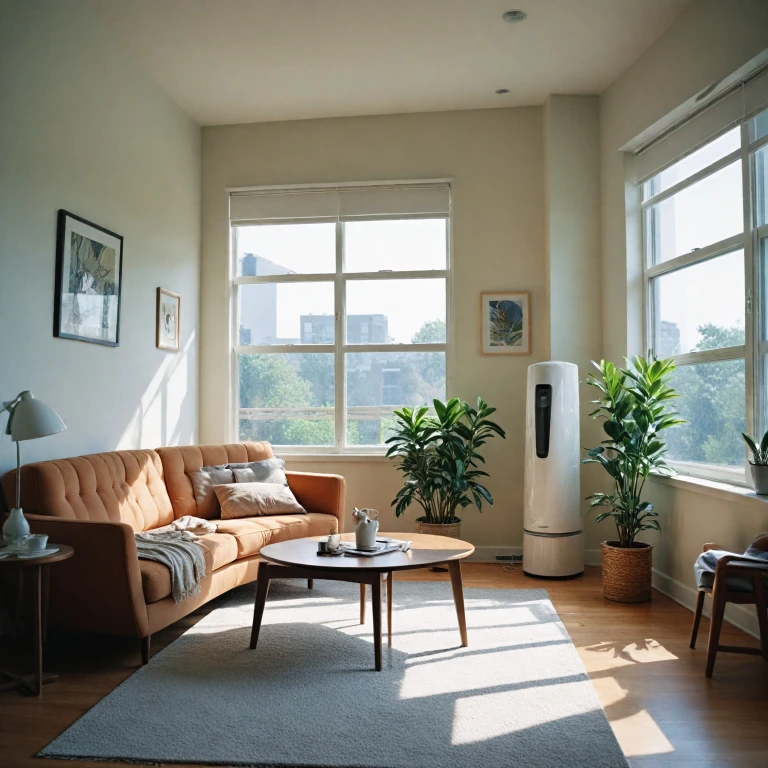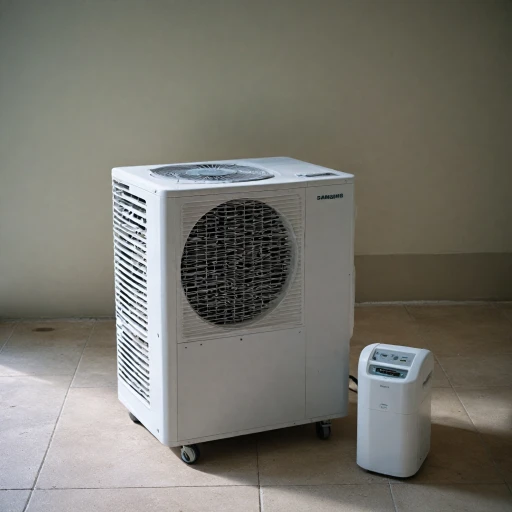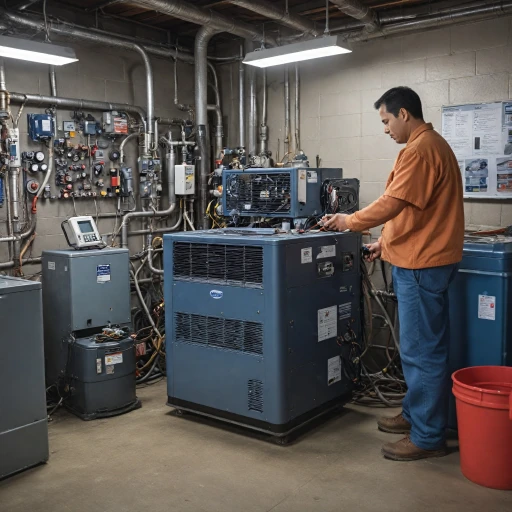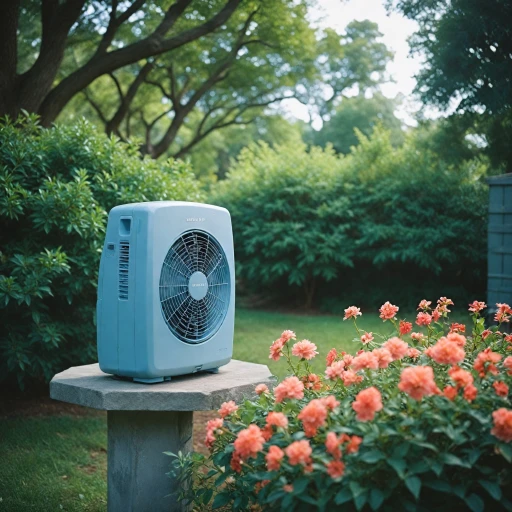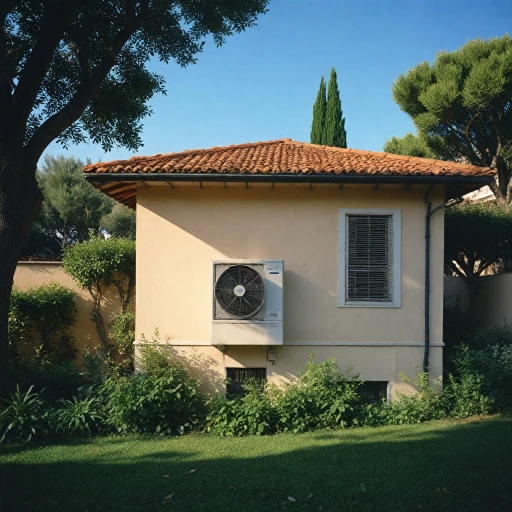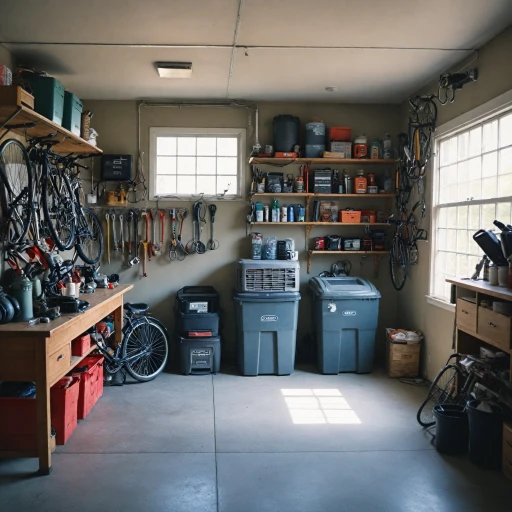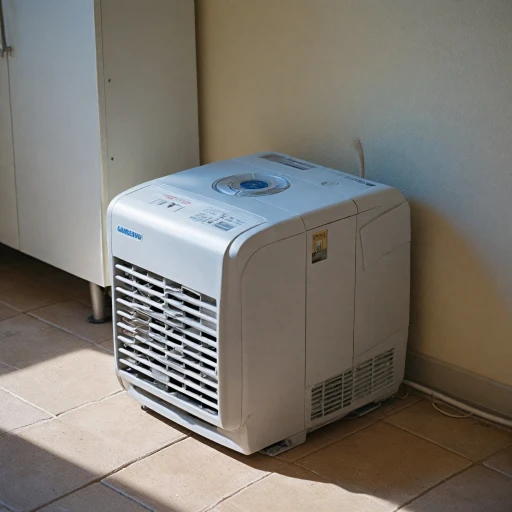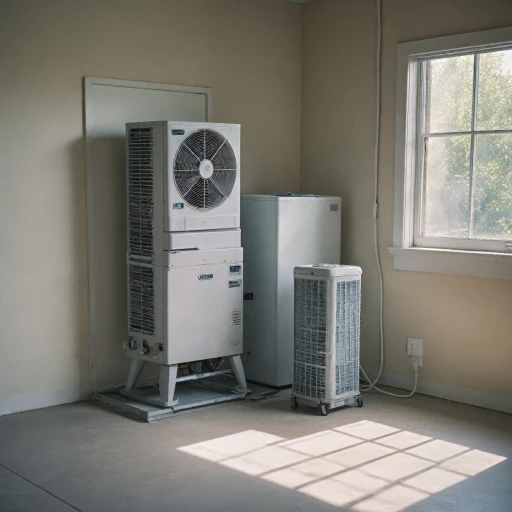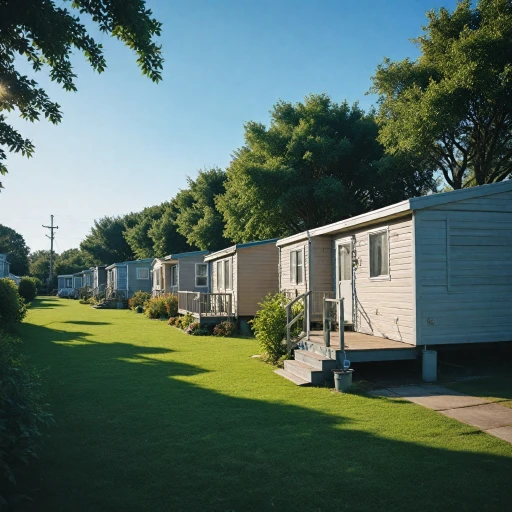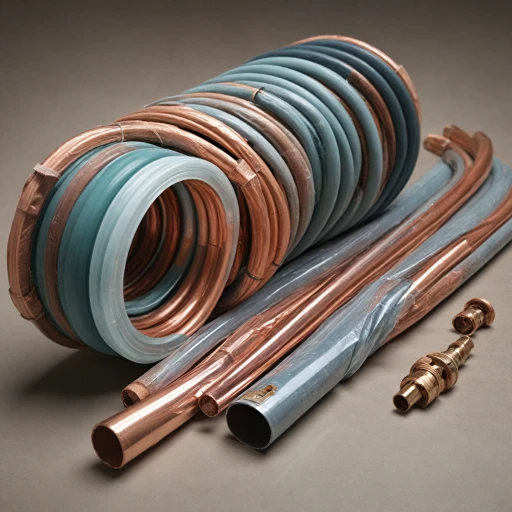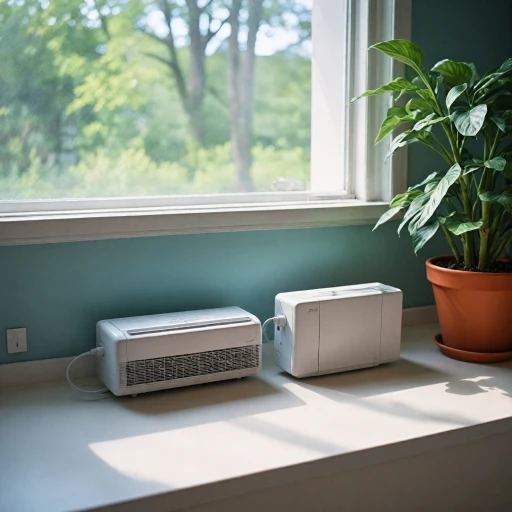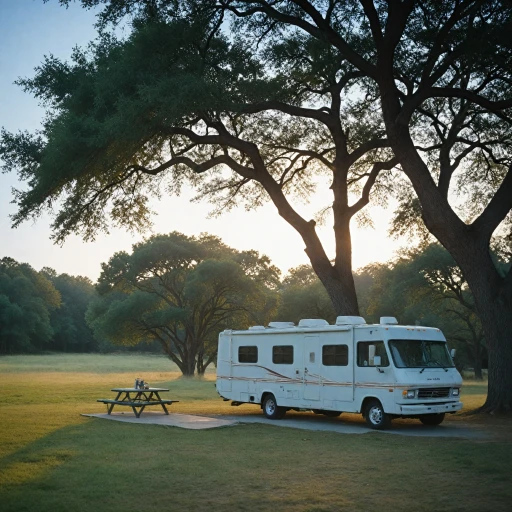
What is a Ventless Portable Air Conditioner?
An Introduction to Ventless Portable Cooling Solutions
Ventless portable air conditioners have emerged as a popular choice for those seeking a hassle-free cooling solution for their indoor spaces. These units are designed to provide a cooling experience without the need for traditional exhaust venting, making them a convenient option for many.
Unlike conventional portable air conditioners that expel hot air outside through a window vent, ventless air coolers leverage the process of evaporative cooling. This involves pulling in warm air from a room, passing it over water-saturated pads, and blowing out cooler air. This method not only refreshes indoor air but also adds moisture, which can be beneficial in dry climates.
These devices don't rely on refrigerant-based systems like traditional air conditioners, making them more environmentally-friendly. With features like remote controls, timer options, and various modes speeds, ventless portable air coolers are designed to offer flexibility and comfort.
Typically less expensive than traditional air conditioners, these units require less maintenance as they don't require professional installation or the handling of condensate water that is common in condenser-based systems. For those interested in alternative cooling solutions, exploring mini-split air conditioners might be beneficial.
Benefits of Using a Ventless Portable Air Conditioner
Advantages of a Ductless Cooling Solution
Ventless portable air conditioners, often called evaporative air coolers, present several appealing benefits for those seeking a flexible and efficient cooling system. These units provide a hassle-free cooling experience, ideal for indoor spaces where traditional air conditioning might not be feasible.- Energy Efficiency: Without the need for a compressor to cool air, ventless portable air conditioners often consume less energy than traditional units. This can help you save on electricity costs, offering a more environmentally friendly option that uses water evaporation to lower room temperatures.
- Portability and Flexibility: These air coolers are lightweight and easy to move, allowing you to reposition them based on your cooling needs. This adaptability is perfect for indoor areas like living rooms, bedrooms, or a home office where you might not have window access for venting.
- Cost-Effective Solution: As ventless products generally come with a lower price tag compared to permanent cooling installations, they offer an accessible solution for those on a tight budget. Moreover, options with a timer remote feature allow you to set specific operating times, which can enhance energy savings.
- Improved Air Quality: By using water to cool the air, evaporative models can help increase humidity levels, which is beneficial in dry climates. This not only contributes to a more comfortable atmosphere but also reduces dust and allergens, thus improving indoor air quality.
- Simple Installation: These units require no complex setup or ductwork, making them an attractive choice for seamless use. The fuss-free installation process ensures immediate cooling without the need for professional help.
Limitations and Considerations
Factors to Consider Before Purchasing
When considering a ventless portable air conditioner, it's essential to weigh its benefits against certain limitations and factors that might impact its performance in your space.- Cooling Mechanism: Ventless air conditioners use an evaporative air cooling process, which means they work best in dry, hot climates. If you live in a humid area, these units might not provide the optimal cooling capacity you're seeking, as the effectiveness decreases when there's too much moisture in the air.
- Room Size: Assess the size of the area you intend to cool. Ventless air coolers typically deliver powerful cooling for smaller spaces, but they may struggle in larger rooms. Know the BTU portable rating of the unit to ensure it's sufficient for your indoor area.
- Water Supply: Since evaporative air conditioners rely on water to function, you'll need a hassle-free way to maintain the water level in the tank. If frequent refills seem cumbersome, you might want to consider other fan options or possibly explore how to optimize efficiency using recycled water practices.
- Air Flow: Keep in mind the unit's air flow capacity. Some models offer modes speeds and timer remote features, allowing you to better control the indoor air circulation and ventilation. Make sure the product's fan and cooler functions align with your preferences for ambient comfort.
- Economic Considerations: While a ventless cooler can save on energy costs due to its air-friendly design, it may not be as efficient as traditional units in all climates. Consider whether the economic benefits balance with your need for consistent cooling delivery during peak heat periods.
How to Choose the Right Model for Your Space
Identifying the Ideal Ventless Portable Air Conditioner
Selecting the right ventless portable air conditioner for your space requires a careful assessment of several factors. Here’s a comprehensive guide to help you make an informed decision, ensuring efficient cooling and optimal comfort.
Evaluate Your Space
- Room Size: Consider the square footage of the area you need to cool. Calculate the cooling capacity you need using BTU (British Thermal Unit) ratings. Smaller rooms may suffice with units up to 8,000 BTU, while larger areas might require 12,000 BTU or more.
- Indoor Conditions: Assess the room's ventilation and sunlight exposure. Rooms experiencing excessive sunlight or poor ventilation may need a more powerful unit.
Features and Functionality
- Timer and Modes: Look for models with timer remote controls to maximize energy efficiency. Multiple cooling modes and fan speeds offer greater flexibility in achieving desired comfort levels.
- Remote Control: A remote control can enhance convenience, allowing you to adjust settings without hassle.
- Recycled Indoor Air: Ventless units often utilize evaporative cooling, recycling indoor air for sustained comfort. Ensure the model you choose has a reliable air recycling mechanism.
Ease of Use and Maintenance
- Portability: Ensure the unit is easy to move around, with features like caster wheels and handles. A unit should be hassle-free in terms of relocation.
- Maintenance: Reference maintenance tips to keep performance optimal and prolong the product's life. Regular cleaning of filters and checking water levels in evaporative units are vital steps.
By taking into account these elements, you can select a ventless portable air conditioner that meets your cooling needs effectively. Consider reviewing different products and comparing their specifications for a more tailored solution that fits your lifestyle.
Maintenance Tips for Optimal Performance
Keeping Your Ventless Portable Air Conditioner in Top Condition
Ensuring that your ventless portable air conditioner operates efficiently requires regular maintenance. Here are key tips to keep your air cooling experience hassle-free:- Regular Cleaning: Dust and debris can quickly accumulate in your unit. To maintain powerful cooling, clean the filters and water tank regularly. This simple upkeep can extend the life of your air cooler and optimize indoor air quality.
- Water Management: As these conditioners primarily use an evaporative cooling mechanism, it's crucial to monitor water levels. Ensure the water tank is consistently filled and clean to maximize evaporative air cooling. Using distilled water can also help prevent mineral buildup.
- Recycled Airflow: For efficient operation, facilitate airflow by not placing the unit too close to walls. This will help the fan to operate freely, ensuring your room receives even cooling.
- Regular Check-Ups: Like any indoor air management product, checking for wear and tear is essential. Inspect the timer remote and power supply chain for any issues and replace parts as necessary to avoid interruptions.
- Diverse Modes and Speeds: Utilize the different modes and speeds available on your unit. Alternating settings can help ensure balanced performance and save energy over time.
Comparing Ventless Models with Traditional Air Conditioners
Weighing Ventless Options Against Traditional Air Conditioners
When evaluating ventless portable air conditioners, it's essential to compare them with traditional ventilation-required models, often referred to as traditional portable air conditioners. This comparison will shine a light on both practical benefits and potential drawbacks, guiding your choice for the best product to fit your needs.- Ease of Installation: Ventless models offer a hassle-free setup process, requiring no external venting or modification to window spaces, contrasting with vented units that often demand more complex installation for cooling comfort.
- Energy Efficiency: The energy consumption of a ventless air cooler can be significantly lower compared to traditional air conditioners. This is primarily due to the less-demanding evaporative process, which depends on indoor air circulation and heat btu efficiency.
- Portability and Space: Both options provide a degree of portability, but ventless models are typically easier to move and reposition since they lack the bulky hoses required for traditional units. This aspect is invaluable for rooms where space is at a premium.
- Cooling Capacity: Traditional units often boast higher btu ratings, making them more suitable for larger spaces or rooms requiring powerful cooling. Ventless air coolers, however, can offer sufficient comfort in smaller, well-ventilated areas thanks to their recycled air mechanism.
- Operational Costs: Traditional air conditioners may incur higher energy costs over time, particularly if the unit's cooling capacity is underutilized. Ventless models, on the other hand, provide energy savings, increasing cost-effectiveness for prolonged cooling periods.
- Various Features: Features like remote control, timer functions, and multiple modes speeds are available in both types, though ease of access and array of options might vary based on the unit's sophistication.
